INTRODUCTION
William James is a thinker whose charm as well as importance derives at least in part from his ability to appeal to different readers in different eras and for different reasons. This remarkable availability for repossession by such varied readers in so many eras would be less likely, perhaps, if James were not so protean a philosopher. Indeed, to call him a philosopher in the traditional sense is to risk doing him an injustice.
Jamess first book which some still consider his greatest was entitled The Principles of Psychology and was published in two volumes in 1890. This pioneering study, which was immediately received with wide acclaim and adopted as a text in many British and American universities, was then followed seven years later by a collection of essays in what appeared to be moral and religious thought entitled The Will to Believe and Other Essays in Popular Philosophy. The essays comprised in this volume, a volume James almost immediately wished he had called instead The Right to Believe, turned out in some respects to prepare him for the prestigious Gifford Lectures that he was invited to give in May and June of 1901 and 1902 in Edinburgh, Scotland, and which were published in 1902 as The Varieties of Religions Experience. However, it was not until five years later, in 1907, that James published the lectures in practical philosophy, as he termed it, that would ever after provide his thinking with its signature description.
First delivered as a set in Boston to a large and receptive audience at the Lowell Institute in November and December 1906, and then later to a much larger and still more enthusiastic audience at Columbia University in January and February 1907, the essays gathered under the title Pragmatism, and dedicated to one of the great exponents of liberty, John Stuart Mill, were almost immediately to define Jamess reputation in the public mind, even as they produced widespread consternation in more specialized philosophical circles. Preceded by several additional texts in practical, indeed popular, philosophy such as his one-volume condensation of The Principlesentitled Psychology: Briefer Course, published in 1892, and Talks to Teachers on Psychology: And to Students on Some of Lifes Ideals, based on a lecture series he frequently gave at Harvard, published in 1899, Pragmatism: A New Name for Some Old Ways of Thinking was quickly followed by a succession of other volumes. These include The Meaning of Truth: A Sequel to Pragmatism, in which he attempted to clarify some of the misinterpretations that the earlier text immediately produced (and still does), and the posthumously published and unfinished Essays in Radical Empiricism, in which he sought to flesh out the lineaments of his metaphysics. Taken together with such additional works as A Pluralistic Universe, which appeared in 1909, and Some Problems in Philosophy, published in 1911, the year after James died, these many volumes, along with more than a hundred essays he wrote on similar or related subjects, as well as a plethora of articles on issues of more topical concern, describe a thinker who was a master not only of philosophy, as it classically defined itself in his age around questions of epistemology, metaphysics, ethics, and the theory of truth, but also of critical thinking generally, as it was seeking to reconstitute itself as a form of public discourse capable of reflecting on such philosophically nontraditional subjects as psychology, religion, educational theory, social thought, politics, cultural experience, and contemporary morals and manners.
Yet what sets all of Jamess writing apart, rendering it simultaneously so attractive and so accessible, are his immense and varied gifts not only as a thinker but also as a writer. James was brilliantly adept at producing an American middle style that makes up in suppleness, wit, grace, and fluidity for what it sometimes lacks, at least for certain kinds of readers, in coherence, rigor, and internal consistency. James writes always out of the decencies and commonplaces and reasonableness of ordinary experience, which he welcomes into his thinking not only as an old and trusted if also frequently amusing friend but also as an ever-renewing and renewable source for reflection. Thought should never rise so far above the plane of common life, James seems to say, that it forgets where it came from and to what it must finally be accountable.

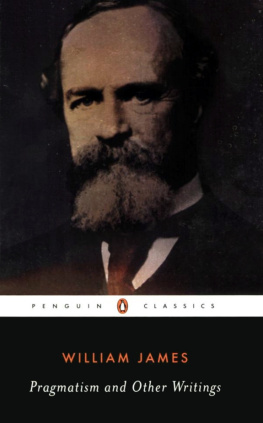
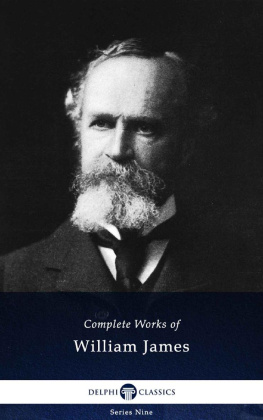
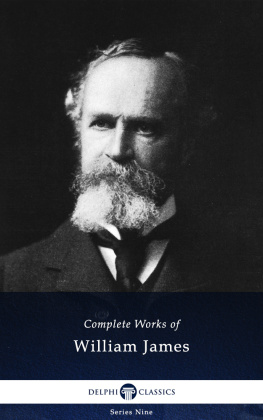
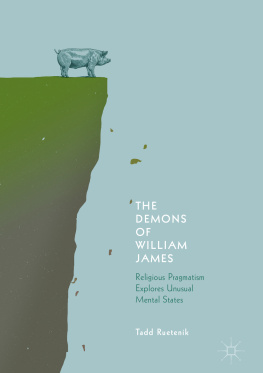
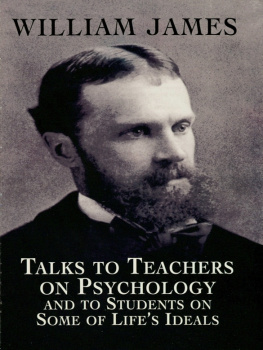
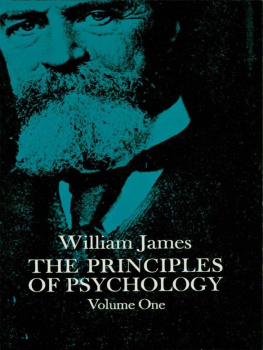


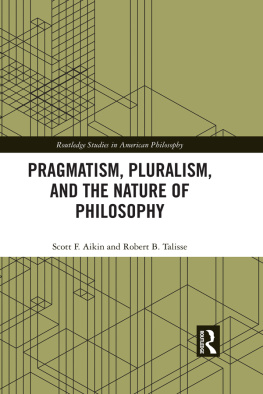
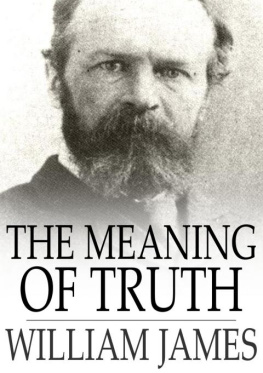
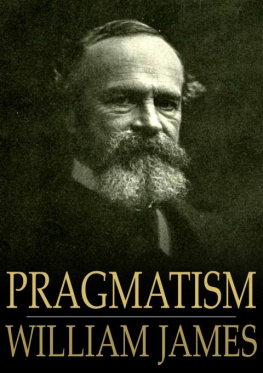
 CLASSICS
CLASSICS